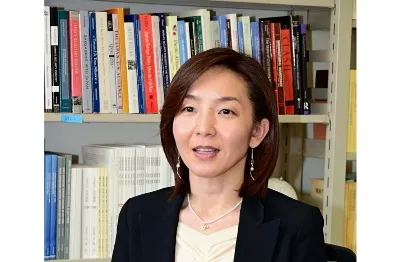Other Publications
Prime Minister Kishida’s “Ideal” and “Reality”: How should we think about a world without nuclear weapons? [in Japanese]
AbstractOn December 1, 2022, an article of an interview with Professor Nobumasa Akiyama, Dean of the School of International and Public Policy at Hitotsubashi University, was published in Asahi Shimbun's “Considering the Future of the Security Treaty” interview series. Professor Akiyama praised Prime Minister Kishida for attending the Nuclear Non-proliferation Treaty (NPT) Review Conference but noted that further contributions by Japan are necessary in the pursuit of nuclear disarmament. In particular, he discussed how Japan should act to achieve nuclear disarmament in the face of Russia's nuclear threat to Ukraine, which has made a “world without nuclear weapons” seemingly far off in the future. Furthermore, Professor Akiyama expressed his views on how to link the “ideal” of a nuclear-free world and the “reality” of a deteriorating security environment. He then proposed goals on nuclear issues that Japan should pursue in the international conferences to be held in the country in the future.
EU Return Directive: From Administrative Discretion to Rule of Law and Compliance with Individual Human Rights [In Japanese]
AbstractIn September 2022, the latest issue of the Review of European Law, edited by Professor Yumiko Nakanishi, was published and included an article on the EU Return Directive written by GGR Visiting Researsher Ikuko Sato. This article examines the issue of whether the EU Return Directive fills the legal ambiguity regarding the removal of third-country nationals who illegally settle in European countries, and whether the Directive brings about a shift from administrative discretion to the rule of law and humane removal. This article first explains the background and scope of the EU Return Directive, and then analyzes the interpretation of the Directive and humane return procedures on the legal basis of the EU Charter and the ECHR, with reference to the case law of the CJEU and the ECtHR. Such case law has clarified provisions that were unclear when the Directive was first adopted, acting as judicial review, and has led to appropriate administrative measures and progress in humane return, by setting forth procedural obligations regarding such as pre-removal detention. However, the professor indicates that, with regard to the non-refoulment principle, the Directive still lacks clarity, including its relationship to humanitarian grounds.
Asia Needs to Go for “Anti-Oppression” through Public-Private Cooperation [in Japanese]
AbstractAn article by GGR Researcher, Professor Maiko Ichihara of the Hitotsubashi University Graduate School of Law, appeared in the October 30, 2022 issue of the Shinano Mainichi Shimbun’s “Tashi-saisai” column. Professor Ichihara explained that governments need to promote anti-oppression efforts by cooperating with the private sector in response to the growing trend of suppression of speech in Asia. After the World War II, Asian governments had maintained relations with other countries based on the principle of non-interventionism, whereas today there are many civilian leaders who proactively oppose authoritarian governments. Taking the Sunnylands Initiative, which was held in Japan this year, as an example, Professor Ichihara pointed out that such public-private cooperations are essential in supporting those who are subjected to suppression of speech.
Field Research When There Is Limited Access to the Field: Lessons from Japan
AbstractOn August 11, 2022, Cambridge University Press published the August issue of PS: Political Science and Politics, which included an article co-authored by Assistant Professor Yujin Woo, a GGR Research Fellow and member of the Hitotsubashi University’s Graduate School of Law. The paper was co-authored by Professor Woo and 16 other doctoral students and professors with experience in conducting fieldwork in Japan. The article explores the question of how scholars can conduct field research when there is limited access to the field. It first identifies how limited and uncertain field access can affect field research and then provides recommendations to address these challenges. The authors focus on conducting field research in Japan due to their substantive expertise, but they state that the problems and solutions outlined in the article are applicable to a broad range of countries. The article’s main purpose is to contribute to the developing literature on conducting research during times of emergency and to the larger literature on best practices for field research.
Chile después de Xi (Chile after Xi) [In Spanish]
AbstractOn November 8, 2022, GGR Assistant Sascha Hannig Nuñez’s article was published in Diario Financiero, a Chilean newspaper partnered with the Financial Times. In this article, Ms. Hannig Nuñez highlights the issues related to the recent re-election of Xi Jinping, China’s leader, and warns of the consequences that the Chilean economy could experience. The former, as its allied country, China, becomes more authoritarian and unpredictable. Since Chile is economically dependent on China in terms of trade and financing, she argues that there is a need for the Chilean government to keep close tabs on China’s operations under the premise that what happens in Beijing could have profound repercussions in Chile.
Asahi World Forum 2022: We Can Make this World a Better Place [in Japanese]
AbstractProfessor Maiko Ichihara, GGR Researcher and member of the Graduate School of Law, participated in the “Asahi World Forum 2022,” which launched online on October 16, 2022. At the conference, Professor Ichihara mainly pointed out the changes in Asian democracies caused by the COVID-19 pandemic and the actions that Japan should take in the future. In a discussion with other speakers, she emphasized the increasing concentration of power in governments during the pandemic and the need to refer to history in order to overcome recent complex social situations. Finally, she stated that as new values emerge in the modern world, it is important for Japan to proactively promote democracy rather than to rely on allies such as the United States to do so. The article also includes other discussions from the Asahi World Forum 2022.
On the Recent Establishment Project of Mazu Temple in Ishigaki Island ― A history of topos and the feasibility of “holistic tourism”[in Japanese]
AbstractIn October 2022, the latest issue of the Journal of Holistic Sciences was published featuring an article by GGR Researcher, Professor Hideki Ishizuka of the Hitotsubashi University Graduate School of Law. Based on the professor’s field research, the article documents the recent plans to build a Mazu shrine on Ishigaki Island in Okinawa and discusses its historical background dating back several centuries. It also argues that the spiritual climate of Yaeyama is supported by an open maritime culture and, therefore, has a potential for holistic tourism.
Is It Useless to Refer to History? In the Era of Social Networking Information Overload, the Past Is Turning into a Database [in Japanese]
AbstractProfessor Maiko Ichihara, GGR Researcher and a faculty member of the Graduate School of Law, participated in the Asahi World Forum 2022, which launched online on October 16, 2022. Based on interviews with French and German experts on the post-COVID period, Professor Ichihara discussed democracy and its future with other participants. Taking the Russian claim of annexation of the four Ukrainian provinces as an example, she further argued that in many regions there has been a trend of repressing freedom through the use of the legitimacy of elections. Moreover, she pointed out that it is important to learn from the past in order to understand the complexities of the modern world. Finally, Professor Ichihara stated that as new values emerge in the modern world, it is important for Japan to proactively promote democracy rather than to rely on allies such as the United States to do so.
El funeral de Shinzo Abe divide a Japón (Shinzo Abe’s funeral divides Japan) [in Spanish]
AbstractOn September 27, 2022, the Spanish newspaper EL PAÍS published an article on former Prime Minister Shinzo Abe’s state funeral in which GGR researcher and Professor Hitomi Takemura’s (Graduate School of Law/School of International and Public Policy) comments were introduced as well. The article describes some major events and accomplishments of Abe’s regime and draws the connection between those and the reasons why so many people rallied to protest against the funeral. It is reported that some legal experts questioned the legitimacy of the state funeral, as did the opponents of the state funeral having denounced the tribute to the politician who tried to revise the pacifist constitution.. The article further discusses the story behind the accused, Tetsuya Yamagami, as well as his ties to the Unification Church, and the possible punishments he could face. In this context, Professor Takemura provides insight into the differences between the punishments that the perpetrator could face depending on his psychiatric assessment.
Japan’s Dilemma: Relying on Nuclear Deterrence while Advocating Nuclear Abolition [in Japanese]
AbstractWith the use of nuclear weapons by Russia becoming increasingly realistic, Professor Nobumasa Akiyama explained the use of nuclear weapons from a legal perspective and suggested what kinds of actions Japan should take toward nuclear disarmament and abolition. Regarding Russia's words and actions over nuclear weapons in the Russo-Ukrainian War, Professor Akiyama noted that while the use of nuclear weapons itself is not legally prohibited, Russia's actions have reinforced both the calls for nuclear deterrence and nuclear abolition. He also argued that it is important for Japan, which will host the G7 summit next May, to provide a forum for discussing nuclear weapons in order to build a world that does not depend on nuclear weapons. Moreover, the professor said that Japan should make accession to the Treaty on the Prohibition of Nuclear Weapons its ultimate goal, however, it is necessary to work carefully and steadily to establish Northeast Asia as a nuclear-free region. Finally, in light of the developments among nations at the NPT Review Conference held in late August, he reiterated the significance of an international conference where all states can come together to discuss nuclear abolition.




